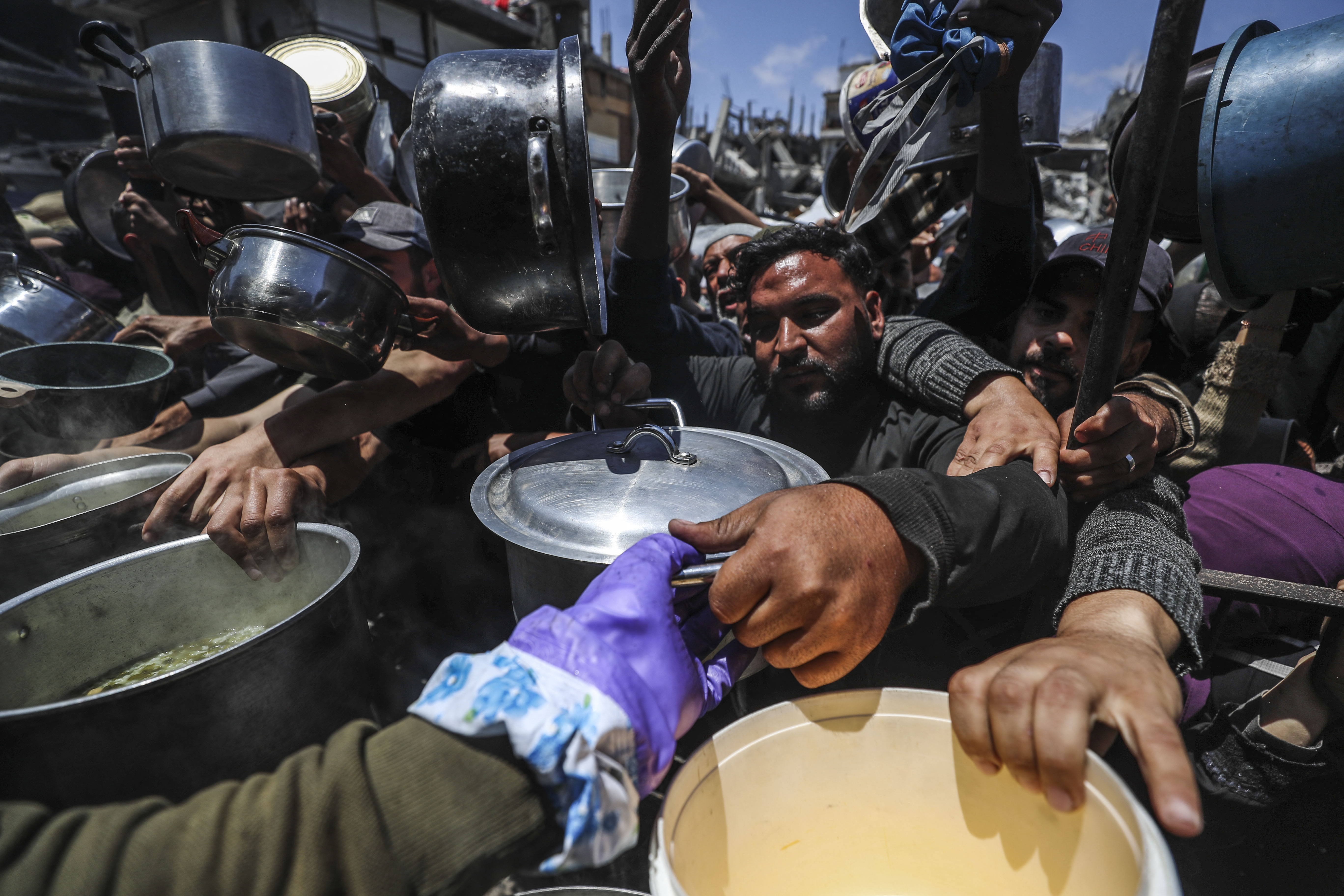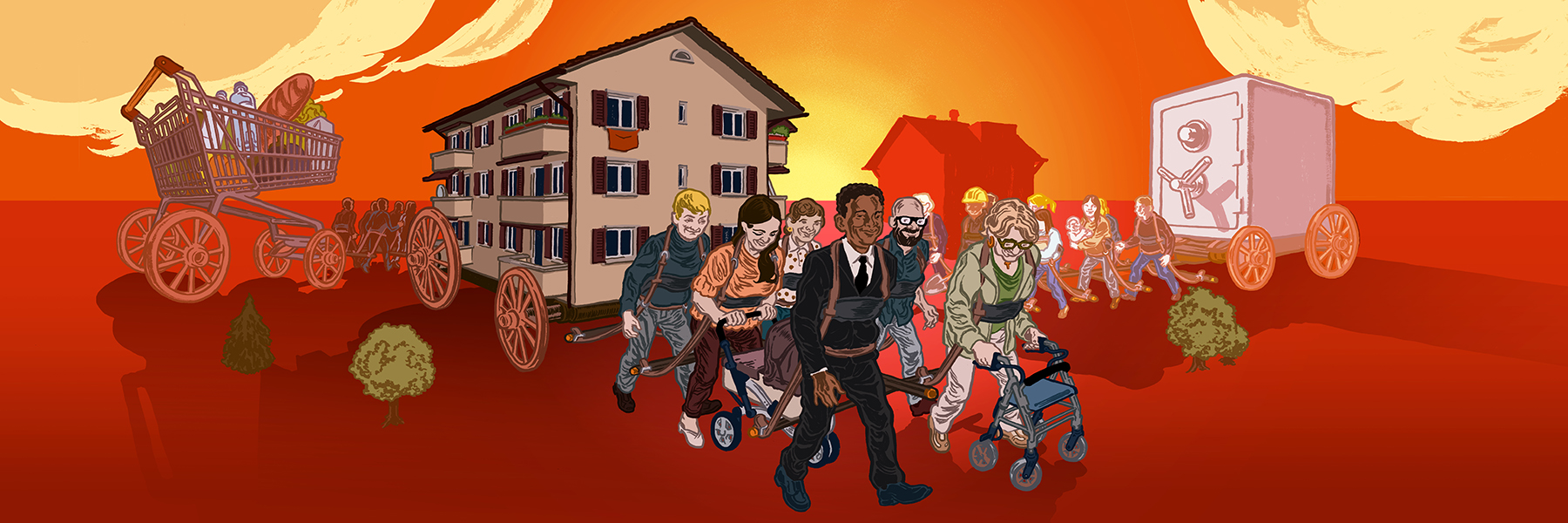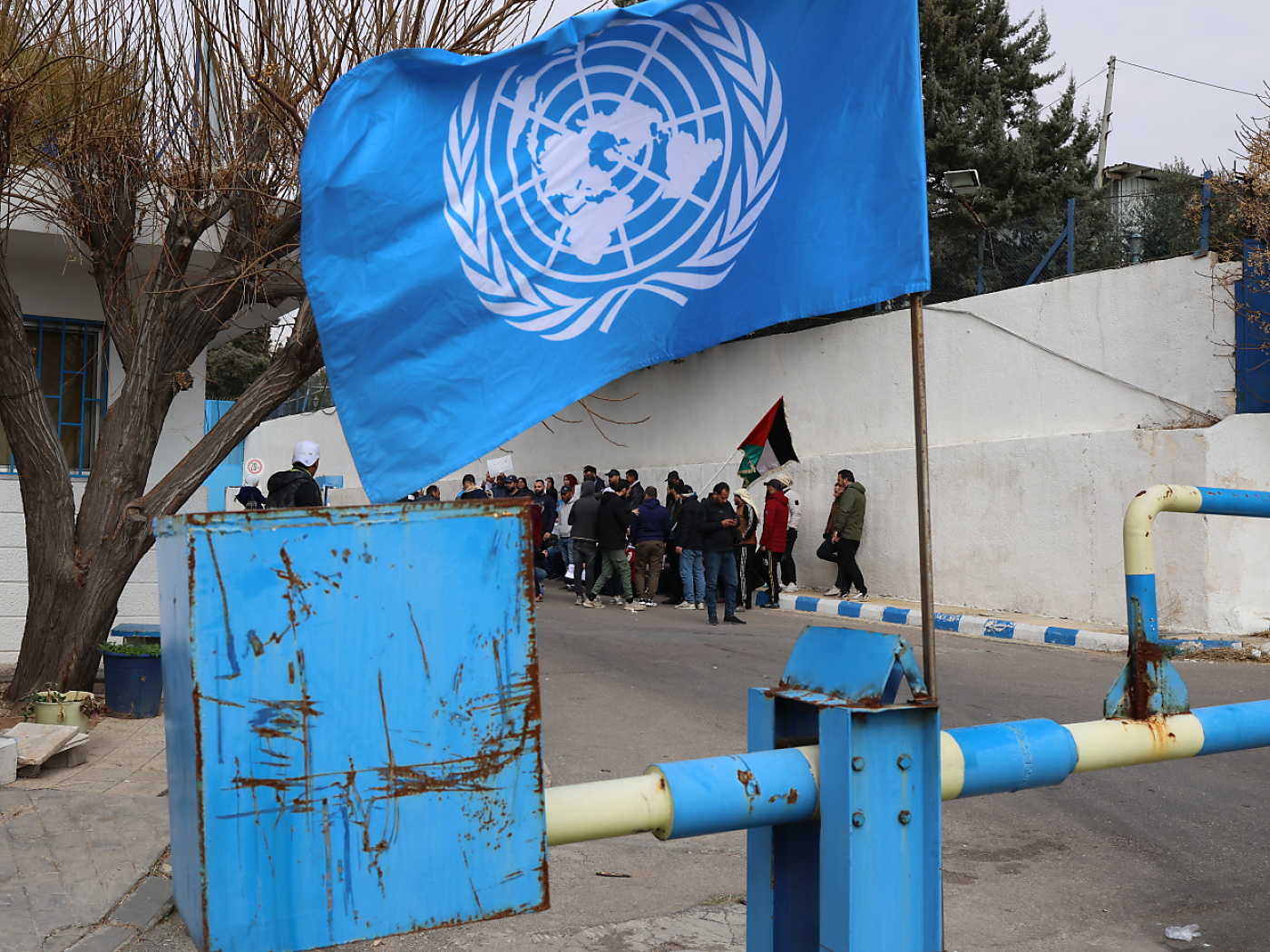
Humanitarian community sounds the alarm over famine risks in Gaza

World Health Organization (WHO) experts and humanitarian workers are sounding the alarm over the dire humanitarian conditions in Gaza. They warn of an unfolding catastrophe marked by starvation and collapsing health services and reject Israeli proposals to take over relief operations in the besieged enclave.
While these warnings are not new, the situation on the ground has deteriorated sharply in recent weeks. A total blockade of food, aid and medical supplies was reinstated following the collapse of the temporary truce between Hamas and Israel. Humanitarian access has been severely restricted since March 2, and Israeli military operations in Gaza have resumed in full force since March 17-18.
“We remain deeply concerned about the catastrophic situation in Gaza, with more than 52,000 deaths… reported to date,” said Dr Hanan Balkhy, WHO Regional Director for the Eastern Mediterranean, speaking during a briefing to journalists on Tuesday.
In the video address, she described a health system in free fall: “Thousands of health workers have been killed, injured or detained. Hospitals that remain open are barely operational. People are dying while lifesaving medical supplies sit just beyond Gaza’s borders, denied entry.”
After nine weeks of blockade, Balkhy said Israeli authorities are now proposing to dismantle the existing UN-led humanitarian aid distribution system and replace it with one controlled by the military. Balkhy made it clear that the UN and WHO will not support such a move.
“WHO and the UN will not participate in any initiative that violates humanitarian principles. Aid must reach those in need, wherever they are – and the blockade must end,” she said. Another colleague noted that it would contravene the principles of impartiality, neutrality, independence and humanity, which guide humanitarian aid.
Israel’s security cabinet this month approved a plan to expand its military offensive against Hamas which includes the “capture” of GazaExternal link and the holding of its territory. Israeli officials have been floating a new plan for providing humanitarian aid using an American private charity and security firm.
“The idea of the model is Hamas will not be able to take advantage of humanitarian aid,” Danny Danon, Israel’s ambassador to the UN, told journalists on May 7.
On Sunday, the Israeli cabinet approvedExternal link the “option of humanitarian distribution, if deemed necessary,” on the condition that Hamas cannot control such supplies, according to a Washington Post report citing an Israeli official. Multiple UN agencies have raised concerns over what they say is the weaponisation of aid.
Three-quarters of Gaza’s population are now assessed to be at either “emergency” or “catastrophic” levels of food deprivation, the two most severe designations on the Integrated Food Security Phase Classification, or IPC, five-point scale. Balkhy predicted rapid deterioration in the absence of urgent action. “Famine has not yet been declared,” she noted, “but people are starving and disease is spreading fast.”
The WHO’s warnings come amid mounting international criticism of the continued siege of Gaza, where UN agencies report extreme obstacles to delivering humanitarian relief. Switzerland, the depositary state of the Geneva Conventions and host country of the WHO, has called for unimpeded access for humanitarian aid.
But Bern has also faced criticism for abandoning plans to host an international conference on humanitarian law in the Palestinian territories, originally set for March 7. According to the Swiss foreign ministry, the initiative was called off due to “profound differences” among nations that made the endeavour unfeasible.
The International Court of Justice (ICJ) External linkthis month commenced hearings into Israel’s alleged blockade of humanitarian aid to Gaza. UN and Palestinian officials accuse Israel of breaching international law by restricting essential supplies. Israel maintains it will not permit aid deliveries until Hamas releases all remaining hostages who were taken to Gaza in the October 7, 2023 attacks that killed at least 1,195 Israelis.
Speaking to the UN in September 2024, Israeli Prime Minister Benjamin Netanyahu drew a link between humanitarian aid and the survival of Hamas. “The terrorists still exercise some governing power in Gaza by stealing the food that we enable aid agencies to bring into Gaza,” he said.
Grim updates from the ground
On the ground, WHO’s representative for the occupied Palestinian territory, Dr Rik Peeperkorn, gave a grim update from Deir al-Balah, a city in Gaza: “The risk of famine in Gaza is increasing,” he said. “This is caused [by] the deliberate withholding of humanitarian aid… the whole Gaza population is affected one way or the other.”
Already, according to the Hamas-controlled ministry of health in Gaza, 57 children have died from the effects of malnutrition. “If the situation persists nearly 71,000 children under the age of five are expected to be acutely malnourished” over the coming months, said Peeperkorn.
He warned of a mounting nutrition crisis among vulnerable groups. Before the blockade, there were no cases of malnutrition among pregnant or lactating women in Gaza; only iron deficiencies. But, if nothing changes, “nearly 71,000 pregnant and lactating mothers are expected to require treatment for acute malnutrition”.
Peeperkorn said access to healthcare is “increasingly out of reach” for most Gazans, vaccine coverage is plummeting and 90% of Gazans lacks access to safe water. All these factors raise the risk of severe illness and death, particularly among the most vulnerable.
“The aid blockade needs to be lifted,” he said. “Humanitarians need to do their work.”
He described recent field visits where WHO teams delivered dwindling stocks of trauma kits and nutrition supplies to four hospitals in northern Gaza. “Currently, we only have enough to treat another 500 children for acute malnutrition – a fraction of what is needed,” he said.
Medical and nutrition supplies are running out fast. Antibiotics, insulin, trauma equipment, dialysis filters, disinfectants – these are all dangerously low, he said. More than 31 trucks are waiting to get supplies in from Al Arij and others are in the West Bank. WFP food supplies and UNICEF supplies are also on standby.
WHO and its UN partners insist that the humanitarian coordination system is proven and ready to function. “There is a well-established proven humanitarian aid coordination system, led by the UN and its partners,” he said. “I was here also during the ceasefire and a massive amount of aid streamed. Very quickly there was diverse foods, medical supplies.”
Aid workers like Alice Skaar, a Norwegian nurse with Norwac Emergency Medical Team, have witnessed the human cost of restricted supplies firsthand. “In Gaza, everything is recycled,” she told journalists speaking from Gaza. She noted how nurses even save packaging to use as firewood when they go home to their tents.
Staff are exhausted, depressed, and terrified for their families, she added. But despite the devastation, Skaar said, the commitment of Gaza’s health workers remains unshaken. “They pray more,” she said. “Religion seems to be their last hope. But even now, among so much pain, they continue to care for patients with immense dedication.”
At least 284 members of staff working for the UN agency for Palestinian refugees, UNRWA, have been killed since the start of Israeli operations in Gaza. The Israeli parliament last fall voted to designate the agency as a terrorist group and Israeli officials consider that the UN habitually disregards Israeli security concerns.
Edited by Virginie Mangin/ml-sb

In compliance with the JTI standards
More: SWI swissinfo.ch certified by the Journalism Trust Initiative




































You can find an overview of ongoing debates with our journalists here . Please join us!
If you want to start a conversation about a topic raised in this article or want to report factual errors, email us at english@swissinfo.ch.